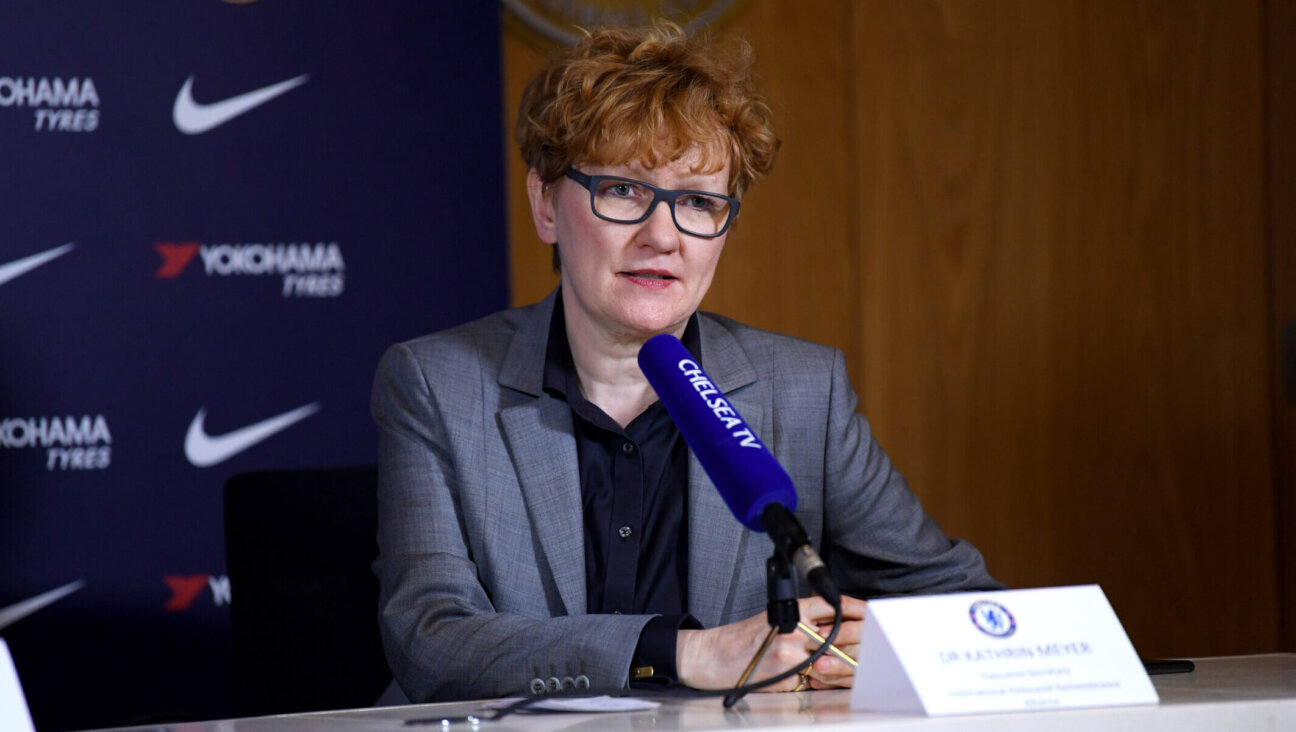Family Ties: A Personal Journey to Understanding
Life, Death & Bialys: A Father/Son Baking Story By Dylan Schaffer Bloomsbury USA, 272 pages, $24.95.
At 38, legal-thriller writer Dylan Schaffer had never baked a bialy. Though raised in New York — a mecca for seekers of the doughy Jewish treat — he’d long ago abandoned the state’s humid shores for California, land of the grocery store frozen bagel. He hadn’t even thought about bialys in years.
Then one night, his terminally ill father, Flip, called to invite him to take a weeklong baking class in New York at the French Culinary Institute. It was an odd request: Although not quite estranged, the two never had been close, and they hadn’t spent much time together since Flip had abandoned the family some three decades earlier and left Schaffer and his siblings in the care of their mentally ill mother. Schaffer now admits that he had only agreed to take the class — set to start seven months later — because he had assumed that his father would be gone by then. But Flip made it. And Schaffer boarded a plane to New York, ready to bake bialys and then some.
In “Life, Death & Bialys: A Father/Son Baking Story,” Schaffer chronicles the seven days he spent alongside his father, learning such baking basics as how to properly shape a baguette, the importance of avoiding freeze-dried yeast at all costs and the simple truth that there’s no such thing as too much butter when it comes to croissants.
Yet while Schaffer is grateful that he now has a better understanding of how to scale ingredients when mixing flatbread dough, and how to operate an industrial spiral mixer, what he’s most thankful for is that the week of begrudged togetherness gave him a chance to finally get Flip to answer some of the questions he’d been dodging for years: Why did he leave his children with a woman he knew to be unbalanced? Why did he scrap a promising writing career to move to South Carolina to teach history? How could a man who calls himself a father desert his kids?
And while his dad doesn’t seem willing or able to answer at first, with each new day at the culinary institute Flip warms a little more to the idea of letting his son in. He tells Schaffer about his marriage and his divorce, about his failed playwriting career, about the life he wanted for himself and the life he had. And though Schaffer takes in every word his father feeds him, he makes a concerted effort not to lap it all up like the hungry-for-love child he once was. He’s well aware that sometimes one must forgive without forgetting.
Schaffer, best known for authoring the “Misdemeanor Man” mystery series (also published by Bloomsbury USA), writes here about the complex relationships between fathers and sons with more delicacy than it takes to fold a croissant. His insightful and improbably humorous look at baking in the face of death is a spot-on depiction of the way our families — more than anyone else in the world — can cause us simultaneous pleasure and pain.
He writes with a truthfulness that is both refreshing and distressing. He confesses to having crushes on women other than his wife and to being relieved when his mother was finally out of his life for good. He owns up to being disgusted by his dad’s deficient dental hygiene and by his tendency to inhale food “with wolfish enthusiasm” rather than consume it. But what is truly amazing is Schaffer’s admission in the latter part of the book that he eventually went to care for his ailing father because he’d like to be thought of as the type of person who’d do that sort of thing. This is a frankness that is unnecessary but appreciated. What individual saddled with a dying parent hasn’t felt that way?
The Schaffer men never did learn to bake bialys in class; they weren’t on the culinary institute syllabus. What they did discover, however, was a thing or two about life, death and each other.
But that’s not as catchy a title.
Leah Hochbaum is a freelance writer living in New York.
A message from our Publisher & CEO Rachel Fishman Feddersen

I hope you appreciated this article. Before you go, I’d like to ask you to please support the Forward’s award-winning, nonprofit journalism so that we can be prepared for whatever news 2025 brings.
At a time when other newsrooms are closing or cutting back, the Forward has removed its paywall and invested additional resources to report on the ground from Israel and around the U.S. on the impact of the war, rising antisemitism and polarized discourse.
Readers like you make it all possible. Support our work by becoming a Forward Member and connect with our journalism and your community.
— Rachel Fishman Feddersen, Publisher and CEO























